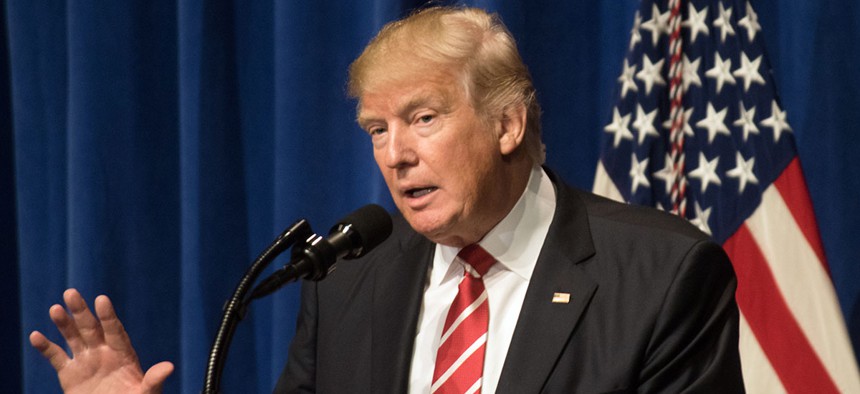
D. Myles Cullen/Defense Department
Embrace Your Inner Trump and Become a Better Leader
Aspects of the president's polarizing personality exist within us all, Zen masters say.
Ask not what you can do for your country but what you can do for yourself.
Yes, President John F. Kennedy said the opposite at his inauguration in 1961. But times have changed and Zen masters say that to engage effectively during Donald Trump’s presidency, we must first turn inward.
Getting angry about Trump and his policies is easy for liberals. He offers lots of opportunities to cultivate and demonstrate rage. But going deeper, to see how infuriating aspects of his personality exist in each of us, can prompt individuals to evolve and become more effective, according to some Buddhist monks. “We need to learn that even in our own personal life, we react out of this place of anger and we see it doesn’t help, and this expands to groups, to nations,” Brother Phap Dung told the Huffington Post.
Once an architect in Los Angeles, Dung is now a monk in Plum Village, the spiritual retreat started by peace activist Thich Nhat Hanh in France. Nhat Hanh, now 90, responded to the US war in his home country of Vietnam with a grassroots humanitarian aid campaign, and became friends with Martin Luther King, convincing him to speak out against the war in 1967. Since then, he’s taught Zen and peace practices to countless people worldwide, explaining, “Nonviolence is not a set of techniques that you can learn with your intellect. Nonviolent action arises from the compassion, lucidity and understanding you have within.”
But to develop that compassion for others, you actually have to look at yourself. Dung says that positive change in the world is driven by internal transformation. He suggests that instead of fuming, opponents find and recognize their inner Trump. “We have the wrong perception that we are separate from the other…so it is very easy to have him as a scapegoat. But if we look closely, we have elements of Trump in us and it is helpful to have time to reflect on that.”
In other words, we all like to think we’re pretty good, and most of us are alright when things go our way—reasonably polite, somewhat generous, and minimally grateful. But dare to look closely, and see! We are what we hate in others—ignorant, bullying.
It sounds terrible. But recognizing this is actually a hopeful moment in the Buddhist view, a chance for personal evolution, without which we cannot begin to fix whatever is amiss in any country.






